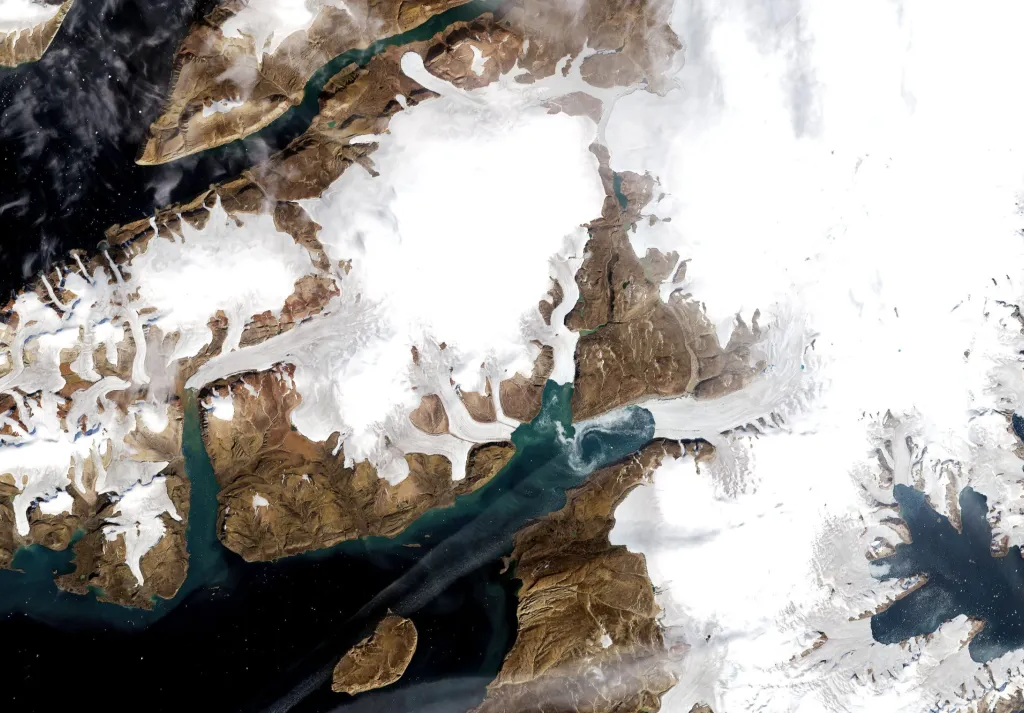As the geopolitical importance of the Arctic increases, U.S. officials are renewing discussions about Greenland's role in space security and national defense. President-elect Donald Trump has called for American ownership of Greenland, citing the island's critical importance for U.S. military and space operations.
In a series of Truth Social posts, President-elect Donald Trump emphasized the necessity of American control over Greenland, describing it as “an absolute necessity” for national security. The U.S. Space Force's only overseas base, located in Greenland, plays a significant role in space operations. This renewed call for American ownership follows Trump's previous suggestion in 2019 to purchase the island, which was met with sharp criticism from Denmark.
Trump's comments came after his appointment of Ken Howery, co-founder of PayPal, as the U.S. ambassador to Denmark. Howery, who previously served as ambassador to Sweden, is tasked with strengthening U.S.-Denmark relations, particularly as Greenland remains under Danish governance as an autonomous territory. In response, Greenland's Prime Minister Mute Egede stated, “we are not for sale and we will not be for sale,” underscoring Greenland's stance on its autonomy.
While the geopolitical discussion around Greenland has focused largely on its economic and environmental importance due to melting ice opening new trade routes and resource claims, the Arctic region's significance in space security is often overlooked. As competition between global powers, particularly the U.S., Russia, and China, intensifies, the Arctic's role in satellite communications and military space operations is becoming more prominent.
The Arctic is a critical region for polar-orbiting and sun-synchronous satellites, which are integral to military and commercial space activities, including weather monitoring, communications, and imagery. These satellites require ground stations in the Arctic to provide consistent tracking, telemetry, and control. The Space Force currently operates two Arctic facilities, including Pituffik Space Base (formerly Thule) in Greenland and Clear Space Force Station in Alaska, both vital to missile warning and space surveillance operations.
Beyond the U.S., Russia and China are increasing their presence in the Arctic, with both countries establishing military and civilian infrastructure to secure their interests in the region. For instance, China has expanded its Arctic activities through its “Polar Silk Road” program and dual-use facilities in Svalbard, Iceland, and Greenland. Similarly, Russia operates several Arctic military bases that contribute to space command and control functions.
The Arctic's importance extends beyond satellite operations to launch capabilities. The U.S. and Russia both maintain near-Arctic launch sites that are optimized for placing small payloads into polar orbits, crucial for rapid reconstitution of space capabilities in the event of conflict.
As space competition grows, particularly with China's expansion in the Arctic, the U.S. may need to secure its presence in the region. The loss of key Arctic bases or the activation of adversary facilities could significantly disrupt U.S. space operations. Experts suggest that strengthening international partnerships and expanding U.S. presence in the Arctic through commercial and defense collaborations will be vital for maintaining space security.
“Space operations are increasingly dependent on Arctic facilities for continuous tracking and control of critical satellites,” said an expert on Arctic space infrastructure. “The Arctic plays a pivotal role in both peacetime space activities and military operations.
In conclusion, as geopolitical tensions rise and space capabilities expand, Greenland's strategic location will remain a key focal point for national security and space defense. Maintaining influence in the Arctic will be crucial for the U.S. and its allies, with commercial and military space operations in the region becoming an integral part of global space security.
